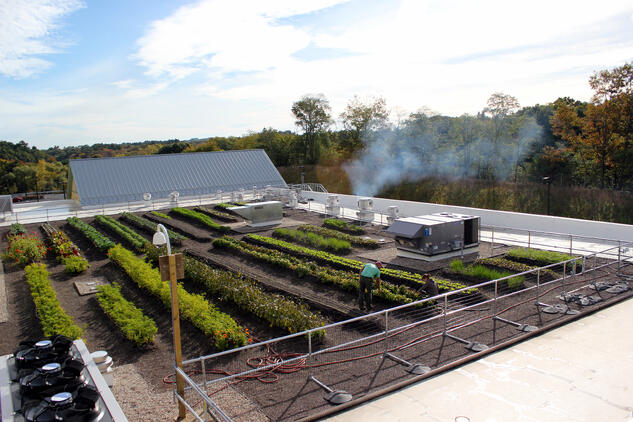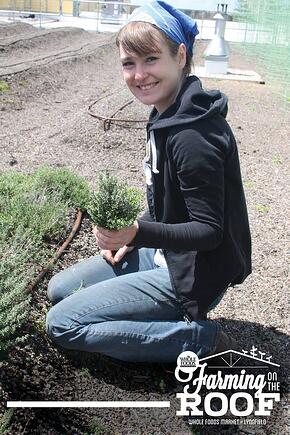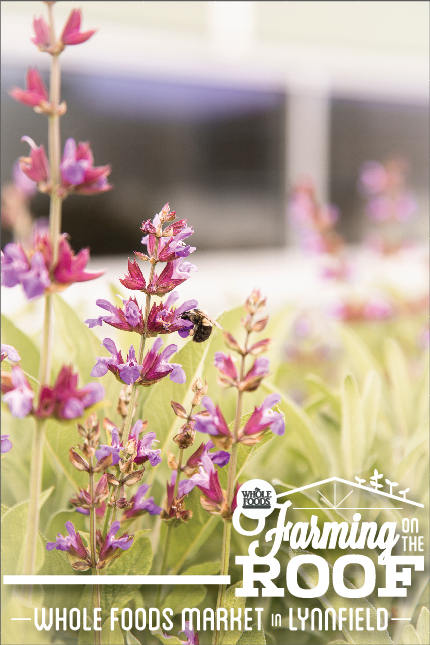Urban farming requires a certain sense of adventure, like moving what is traditionally done only at ground level and moving it several stories high onto a rooftop. Rooftop farming is not without its challenges. Farming is not without its challenges, but even more so when done up on a roof. Our Director of Horticulture Laura Feddersen was recently asked a few interesting questions about our rooftop farming operation at Whole Foods Market in Lynnfield. Here's how she answered.

1. What products do you use to amend the soil and control pests?
Laura: We use only organic, OMRI approved products for fertility and pest management. We manage first through prevention and optimizing plant health before introducing products. For soil fertility and microbial life we use compost, rock dust, and Pro-Gro, an organic all purpose fertilizer from North Country Organics. For pest control we turn to neem oil, insecticidal soap, Spinosads and BT if needed, as well as beneficial insects such as parasitic nematodes. A simple spray made of milk and baking soda applied plant leaves is very effective for prevention and control of fungal disease.
2. What are the ten most successful crops from the rooftop farm?
Laura: Sweet peppers, jalapenos, and cucumbers are very prolific, carrots and cilantro have great flavor, salad turnips, arugula, ground cherries, salad tomatoes, and radishes of all kinds do very well.


3. What are the ten least successful crops from the rooftop farm?
Laura: Japanese eggplant, banana peppers, and bok choy grew very well but didn't sell as well in the store because many people don't recognize them. Heirloom tomatoes tend to split in the rooftop soil. Basil got very bad downy mildew this year. Head lettuce didn't size up well this year because of cold spring/late planting. Onions, leeks, and beets didn't size up well either.
4. Any stories of experimenting?
Laura: We did some experimentation with mulches and compost last year. We found cocoa hull mulch, a byproduct of the chocolate industry, works like magic, making tomato plants much larger and greener - it also has a noticeable impact on pepper plants. We've found a thin layer of compost added at the beginning of the season jump starts the microbial soil communities and improves plant health. I experimented with adding blood meal to keep kale plants going through the summer, but this resulted in a lot of aphids being attracted to the vigorous new growth. I won't do this again!
Learn intensive growing techniques, and organic fertilization and pest management practices firsthand from Laura and her team at the next intensive Urban Farming Course, or a myriad of other urban farming topics at a seasonal workshop.



